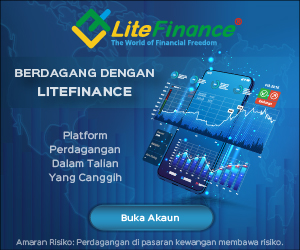The investment landscape is changing rapidly, with new technologies and financial instruments emerging every year. However, many investors look for reliable and proven types of investments, which typically include conservative ones, such as gold, real estate, mutual funds, corporate bonds, and the time-tested—as well as rather faster-paced—Forex market. What are the differences between the two, and which should an investor choose?
CONSERVATIVE INVESTMENTS VS FOREX
Conservative investments are usually characterised by relatively low risk, high predictability, and a long-term approach while investing in Forex has a low entry threshold, favourable conditions, and many instruments to manage and increase investments. The choice is up to the investor. Still, in this article, the pros and cons of these types of investments were put together on the basis of various researches carried out by OctaFX in Malaysia and other countries.
‘When it comes to investments, one has to decide on how much control over their investments they want to have and how much risk in investments they can tolerate. Conservative options usually belong to the ‘invest and forget’ type of financial instruments, while Forex is the market where one is in charge of one’s own investment portfolio and can manage it any time, any place,’ said the financial and trading expert Gero Azrul.
CONSERVATIVE INSTRUMENTS
For those looking to put their savings into something low-risk, there are several options in the market. One has to remember, though, that such investments typically have low returns. Nevertheless, investors should always consider the risk an investment poses to their portfolio.
A savings account is a deposit account at a bank that pays interest. Although the interest rate is usually quite modest, such an account is safe and reliable in terms of saving money. A savings account is ideal for creating an emergency fund, saving for short to medium-term goals, and storing extra cash one does not need in the current account. Saving accounts are pretty flexible in regard to how often money can be withdrawn, with some banks offering unlimited withdrawals. A savings account can hardly be called an investment option due to its low returns. Nevertheless, they are a good option for storing cash that can be easily accessed in emergency or for short-term goals.
Pros: offers a stable yet modest return on money, safe in the sense of a shallow risk of losing money, most accounts are secured by the government and can be compensated.
Cons: inflation negatively affects its purchasing power.
Gold
Historically, gold has been one of the best means of preserving wealth, often—the best investment. That is why it is so important in the modern economy. Investors often turn to gold to hedge against inflation and—in times of economic and political instability—to move some of their less-protected assets to this ‘safe haven’. Investors also use gold to diversify their portfolios because it is not correlated to other financial instruments, such as real estate, stocks, and bonds. Contrary to popular opinion, it is possible to invest in gold without physically buying it—through stocks of gold mining companies or ETFs (exchange-traded funds). Still, there are some disadvantages of investing in gold, among which are the high volatility of the gold price and having to wait for a return on investment for a long time. Gold is largely used by investors who want to ‘play it safe’ and protect their capital rather than enlarge it in any meaningful way.
It is possible to invest in gold through CFDs typically provided by most Forex brokers, including OctaFX. This way, investors can make money both when the price of gold goes up and when it goes down during a bear market. According to OctaFX’s Malaysian clients, this type of portfolio management turns out to be the most efficient and flexible.
Pros: protected from inflation, high liquidity.
Cons: the gold market is volatile, it may take years for it to go up in value.
Fixed Annuities
A fixed annuity is a type of insurance product that offers to pay the buyer fixed rates of return. The life insurance company derives the rate based on the yield it gets from its investment portfolio, which is mostly invested in government and corporate bonds. There is usually a guaranteed minimum rate as a measure of protection against declining interest rates. Fixed income annuities may also generate guaranteed income for a specified period of time or the rest of the annuitant’s life. All annuities are tax-deferred, with annuity owners paying taxes only when they pull the money out of an annuity. Fixed annuities are often used as part of retirement planning.
Although annuitants get guaranteed returns on their fixed annuities, they are typically very low. They also have several fees and commissions that further reduce the returns. In most cases, the payments on fixed annuities are not protected from inflation. There are companies that offer inflation-protected fixed annuities, but they are typically much more expensive.
Pros: guaranteed returns and income, tax deferrals, flexible payout options.
Cons: low returns, commissions and fees, limited inflation protection.
Real Estate
Real estate is another popular conservative investment tool, especially if an investor plans to hold onto it for an extended period of time. It can generate stable cash inflows when rented out, appreciates in value over time, and acts as an inflationary hedge. However, it has a high entry threshold, requires maintenance, and is not liquid—it is hard to sell off real estate quickly. The value and rent price of real estate can also decline over time or even abruptly when a property bubble bursts. Real estate income is subject to taxes, which can be substantial. It also requires costly maintenance and looking for responsible renters who would not inflict damage on your property. Apart from that, there is no way to hedge against risks associated with the property market and political situation in the country, over which real estate owners have no control.
Pros: provides regular income, property usually grows in price over years.
Cons: high entry threshold, renovation, maintenance, and taxing expenses, dependence on the real estate market and political situation.
Corporate Bonds
Corporate bonds are debt obligations issued by companies. It is a relatively low-risk, fixed-income instrument made up of debt securities, which companies issue to raise capital. On average, corporate bonds are less volatile and less risky than stocks. The corporate bond market is one of the most liquid markets in the world.
There are several types of risks associated with bonds: credit risk, interest rate risk, and market risk. Due to their low-risk nature, corporate bonds in Malaysia bring lower returns. In addition to that, many of them have to be bought over the counter.
Pros: relatively stable profit from large trusted companies, high liquidity.
Cons: low returns, credit risk, interest rate risk, and market risk.
Mutual Funds
Individual investors receive access to professionally managed portfolios of equities, bonds, and other securities through mutual funds and thereby share proportionally in the fund’s gains and losses. As part of the expense ratio, investors pay a management fee, which is then used to pay a professional portfolio manager responsible for buying and selling stocks, bonds, and other securities. Dividends and other income goes to the fund and is then reinvested into additional financial instruments. Most mutual funds apply rigorous diversification measures to reduce the risks associated with investing. Some funds own up to one thousand stock positions in various industries.
Some fund companies charge high expense ratios and sales charges. Management abuses are also quite common in mutual fund investing. Portfolio managers may abuse their authority and make ineffective decisions, which leads to public mutual fund investors losing their money.
Pros: portfolio managed by professionals, reduced risks, dividend reinvestment, favourable pricing.
Cons: high expense ratios, tax inefficiency, possible management abuses, sales charges.










